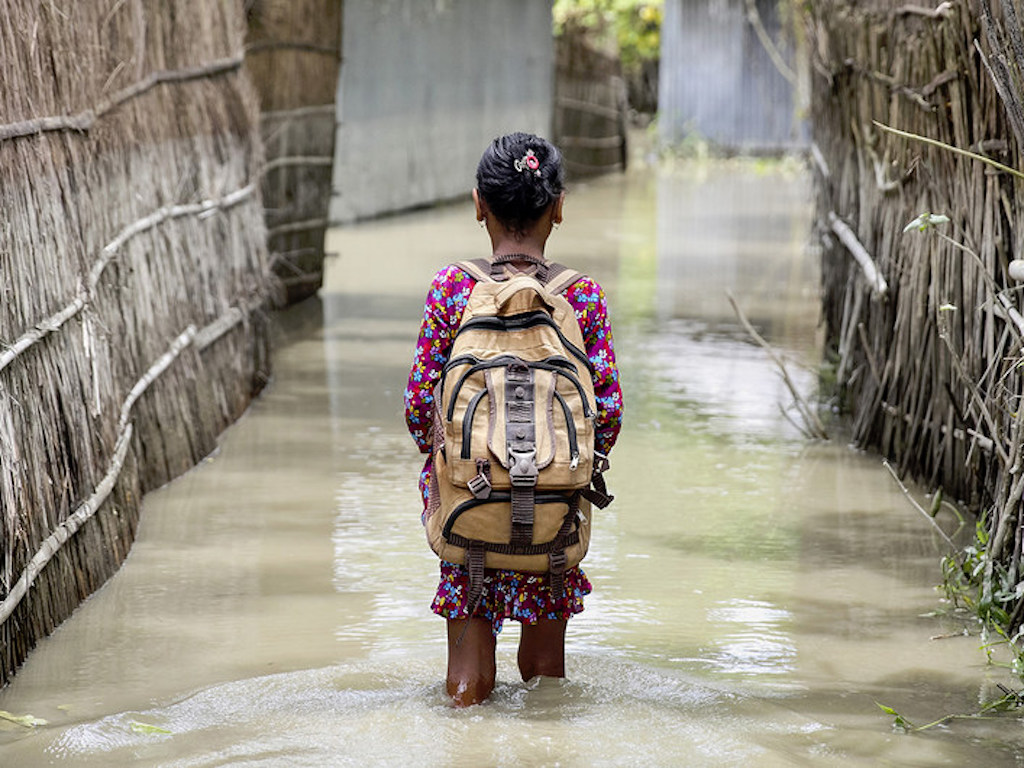3 Mins Read
According to a new study by Climate Central published in Nature Communications, 300 million people will experience annual coastal flooding by 2050, three times more people than previously thought. Many of these people are located in Asia, with China, Bangladesh, India, Vietnam, Indonesia and Thailand to be the most affected regions. More specifically, major cities in Asia will also find themselves in flood zones, with Hong Kong, Bangkok, Shanghai, Mumbai among some of those named. This new estimate by leading scientists reveals the severity of our climate crisis, and how close our planet is to experience unrecoverable losses if we continue on our current path.
Published on Tuesday, scientists at Climate Central revealed shocking findings about the state of climate change. According to their study, land that currently houses 300 million will be affected by coastal flooding annually by 2050, even if we curb emissions right now. More bleak news: this number will more than double to 630 million by 2100 if we do not act to cut down emissions and continue at our current rate. An additional 150 million people will also experience permanent high tides, causing additional economic and social damage than ever before.
This new analysis further restates what we know: climate change will particularly affect the Asia-Pacific region, which is most vulnerable to rising sea levels and cryospheric changes caused by global warming. The study points out that Asia will bear the brunt of destructive storm surges, powerful cyclones and high tides. More specifically, more than two-thirds of the 300 million predicted to be at risk are currently in China, Bangladesh, India, Vietnam, Indonesia and Thailand. Millions in key Asian cities will also be threatened by flooding, including Bangkok, Hong Kong, Shanghai, Taizhou, Surabaya, Dhaka, Mumbai, Ho Chi Minh City and Osaka.
These new estimates are three times higher than previous numbers that aim to calculate the impact of climate change. Using a form of artificial intelligence called “neural networks”, researchers found that the extent to which coastal zones are subject to flooding had been severely understated in past analyses. “Sea-level projections have not changed, but when we use new elevation data, we find far more people living in vulnerable areas than we previously understood,” said chief scientist and Climate Central CEO Ben Strauss to AFP.
The study found more disturbing impacts of climate change: our global coastlines on maps will inevitably become unrecognisable to future generations due to our choices in the next decades. Our cities, economies, coastlines and regions are vulnerable to major changes within our lifetime, because our greenhouse gas emissions have already set rolling the course of sea-level rise in the next coming decades.
These findings mirror the latest IPCC report on the state of our cryosphere, which warned that major storms that used to occur once a century will happen every single year, especially in the tropics by 2050. It also found that annual flooding will also cost cities 100 to 1000 times what it currently costs governments today. Multiple other reports conducted by institutional analysts have also warned against the threat of global warming induced flooding to major cities, such as Goldman Sachs’ study finding that Shanghai, Mumbai and Tokyo are among some of the biggest cities in the world to find themselves underwater.
What is clear from this study is that we can no longer wait for action. In order to avoid a scenario where more than 600 million people and their communities are severely affected and massive economic costs are incurred, we must act now. Whether it is empowering women to combat climate threats, planting trees to offset carbon emissions, reducing our everyday footprint through individual changes or investing trillions to build climate resilient infrastructure, global community efforts must start right now.
Lead image courtesy of UNICEF / Akash.




